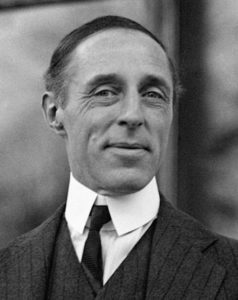
D. W. Griffith
*D. W. Griffith was born on this date in 1875. He was a white-American film director.
David Wark "D. W." Griffith was born on a farm in Oldham County, Kentucky, the son of Jacob Wark "Roaring Jake" Griffith and Mary Perkins. His father was a Confederate Army colonel in the American Civil War who was elected as a Kentucky state legislator. Young Griffith was raised as a Methodist and attended a one-room schoolhouse where his older sister Mattie taught him. His father died when he was 10, and the family struggled with poverty.
When Griffith was 14, his mother abandoned the farm and moved the family to Louisville, Kentucky; there, she opened a boarding house, which failed shortly afterward. Griffith then left high school to help support the family, working in a dry goods store and later in a bookstore. He began his creative career as an actor in touring companies. Meanwhile, he was learning to become a playwright but had little success. Only one of his plays was accepted for a performance. He traveled to New York City in 1907 to sell a script to Edison Studios producer Edwin Porter; however, Porter rejected the script and gave him an acting part in Rescued from an Eagle's Nest instead. He then decided to become an actor and appeared in many films as an extra.
Widely considered an essential filmmaker of his generation, he pioneered feature-length movies and many enduring cinematic techniques, such as the close-up. His film The Birth of a Nation (1915) broke box-office records but also attracted much controversy, as it depicted Blacks in a negative light and glorified the Ku Klux Klan. Intolerance (1916) was made as an answer to his critics. Several of Griffith's later films were also successful, including Broken Blossoms (1919), Way Down East (1920), and Orphans of the Storm (1921). Still, the high costs he incurred for production and promotion often led to commercial failure. He had made roughly 500 films by the time of his final feature, The Struggle (1931).
He co-founded United Artists, enabling them to control their interests rather than depending on commercial studios. Griffith was also an Academy of Motion Picture Arts and Sciences member. On the morning of July 23, 1948, Griffith was discovered unconscious in the lobby at the Knickerbocker Hotel in Los Angeles, where he had been living alone. He died of a cerebral hemorrhage on the way to a Hollywood hospital. A public memorial service was held in his honor at the Hollywood Masonic Temple, but few stars came to pay their last respects.